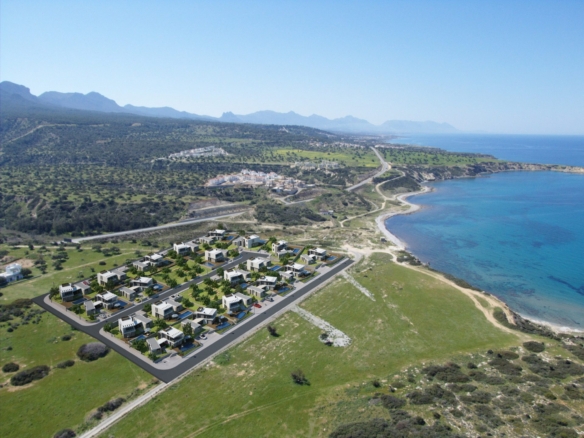The property market in Northern Cyprus has experienced a significant decline 2024, with reports indicating a sharp drop of approximately 70% in property sales in 2024. While there are several factors contributing to this downturn, the main reason for the decline appears to be the introduction of new high tax rates and residency permit regulations.
Impact of New Tax Rates and Regulations
High Tax Rates
The implementation of new high tax rates has had a significant impact on the property market in Northern Cyprus. These increased taxes have made it more expensive for foreign buyers to purchase properties, leading to a decrease in demand. The higher costs associated with property transactions have deterred many potential buyers, contributing to the overall decline in property prices.
Residency Permit Regulations
In addition to the high tax rates, the new residency permit regulations have also played a major role in the decline of the property market. The introduction of stricter requirements ( pasive income min 15,000€ per person) for obtaining residency permits has made it more challenging for foreign buyers to invest in Northern Cyprus. This has led to a decrease in foreign investment, which has been a significant driver of the property market in recent years.
Impact on Specific Areas
Iskele, Tatlisu, and Gaziveren
These areas, which were once popular among foreign buyers, have been particularly affected by the decline in the property market. The lack of a robust organic market and insufficient infrastructure in these regions has made them more vulnerable to the impact of the new tax rates and residency permit regulations. With fewer foreign buyers entering the market, property prices in these areas have fallen sharply.
Kyrenia and Lefkosa
In contrast, regions like Kyrenia ( Lapta, Alsancak, Catalkoy) and Lefkosa have been less affected by the decline in property prices. These areas have a stronger local demand and better infrastructure, which has helped to cushion the impact of the new tax rates and residency permit regulations. While prices may have declined in these regions as well, the impact has been less severe compared to areas that rely more heavily on foreign investment.
Future Outlook
Potential for Recovery
If the new tax rates and residency permit regulations are adjusted or revised in the future, there is potential for the property market in Northern Cyprus to recover. A more favorable tax environment and streamlined residency permit process could help to attract foreign investment once again, driving up demand and stabilizing property prices. However, any recovery will depend on the specific changes made to these policies and the overall economic conditions in the region.
Areas to Watch
As the property market in Northern Cyprus evolves, investors should keep a close eye on regions that are investing in infrastructure and amenities. These areas may present opportunities for growth, particularly if they are able to attract both local and foreign buyers. Additionally, the student population in Northern Cyprus may create demand for rental properties, which could provide a source of income for investors.
Conclusion
The decline in the property market in Northern Cyprus can be largely attributed to the introduction of new high tax rates and residency permit regulations. These changes have had a significant impact on both local and foreign buyers, leading to a decrease in demand and a sharp drop in property prices. While some regions have been more affected than others, the future of the property market will depend on the ability of the government to create a more favorable investment climate. Investors should approach the market with caution, but also with an eye towards potential opportunities for growth in the years to come.




